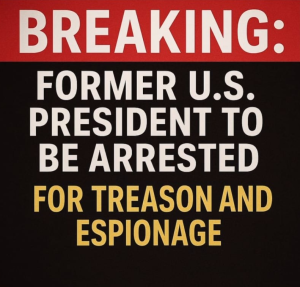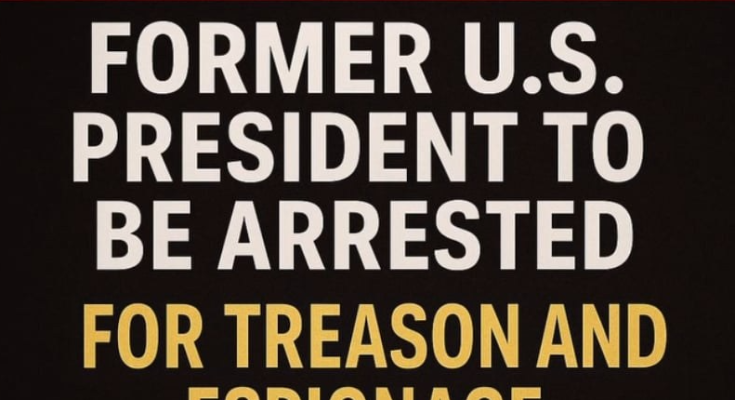
A Historic Reckoning: The Legal Storm Surrounding a Former U.S. President
In the annals of American history, few events have shaken the foundations of democracy like the indictment of a former president. The recent federal charges brought against Donald J. Trump under the Espionage Act have ignited fierce debate, legal scrutiny, and public anxiety. While the term “treason” has been floated in media headlines and political rhetoric, the actual charges—centered on violations of the Espionage Act—paint a complex picture of national security, executive privilege, and the rule of law.
The Charges: Espionage Act Violations
At the heart of the case are 31 counts under Section 793(e) of the Espionage Act, a century-old statute originally enacted during World War I to combat disloyal wartime activities. The law prohibits the unauthorized possession, transmission, or retention of national defense information that could harm the United States or benefit a foreign power. In Trump’s case, prosecutors allege that he willfully retained sensitive documents after leaving office and refused to return them, despite repeated requests from federal authorities.
These documents reportedly include military plans, nuclear capabilities, and foreign intelligence assessments. According to the indictment, Trump stored them in unsecured locations—including a bathroom and ballroom at his Mar-a-Lago estate—and showed them to individuals without security clearance.
Treason vs. Espionage: A Legal Distinction
While the charges are grave, it’s important to clarify that Trump has not been charged with treason. Under Article III, Section 3 of the U.S. Constitution, treason is narrowly defined as “levying war against [the United States], or in adhering to their enemies, giving them aid and comfort.” It requires an overt act and testimony from at least two witnesses.
Espionage, by contrast, encompasses a broader range of offenses related to the mishandling of national defense information. It does not require proof of intent to aid an enemy, only that the accused knew the information could harm national interests. In Trump’s case, prosecutors argue that his actions meet this threshold, though they stop short of alleging treason.
Political Fallout: A Nation Divided
The indictment has deepened partisan divisions, with Democrats framing it as a necessary step to uphold the rule of law, and many Republicans decrying it as a politically motivated attack. Trump himself has called the charges a “DARK DAY” for America, insisting that he had every right to possess the documents and that he did “everything right”.
His supporters argue that the prosecution sets a dangerous precedent, potentially criminalizing post-presidency behavior and weaponizing the justice system. Critics counter that no one—not even a former president—is above the law, and that safeguarding national secrets is a non-negotiable responsibility.
Legal Strategy: Defense and Counterclaims
Trump’s legal team has signaled an aggressive defense, challenging the classification of the documents and asserting that he had declassified them before leaving office. However, the Espionage Act does not hinge on whether the documents were formally classified—it focuses on whether they contain national defense information, a broader and more ambiguous standard.
Additionally, Trump’s lawyers have floated the idea of a settlement with the Department of Justice, though sources suggest that prosecutors rejected the proposal. The case is expected to hinge on witness testimony, document trails, and the interpretation of executive authority.
Historical Precedent: Uncharted Territory
No former U.S. president has ever faced federal charges under the Espionage Act. While past presidents have been embroiled in scandal—Richard Nixon’s Watergate, Bill Clinton’s impeachment, and George W. Bush’s Iraq War intelligence controversies—none have been criminally indicted for mishandling national security information.
This makes Trump’s case a legal and constitutional milestone. It raises questions about the limits of presidential power, the sanctity of classified information, and the mechanisms for accountability in a democracy.
Public Reaction: Trust and Turmoil
Public opinion remains sharply divided. Polls show that a majority of Democrats support the indictment, while most Republicans view it as unjust. Independent voters are split, with many expressing concern about the implications for national security and democratic norms.
The case has also sparked renewed interest in the Espionage Act itself, with legal scholars debating its scope, relevance, and potential for reform. Some argue that the law is outdated and overly broad, while others see it as a vital tool for protecting sensitive information in an age of cyber threats and global espionage.
The Road Ahead: Trials and Tribulations
The legal proceedings are expected to be lengthy and contentious. Trump has pleaded not guilty, and the trial will likely involve complex arguments about executive privilege, document classification, and intent. The outcome could have far-reaching consequences—not just for Trump, but for future presidents, whistleblowers, and national security protocols.
If convicted, Trump could face significant prison time, though sentencing would depend on the specific charges and judicial discretion. The case may also influence his political future, including his eligibility to run for office and his standing within the Republican Party.
Broader Implications: Democracy on Trial
Beyond the courtroom, the indictment represents a test of American democracy. It challenges the nation to balance accountability with fairness, transparency with discretion, and justice with unity. It forces citizens to confront uncomfortable truths about power, privilege, and the fragility of institutional trust.
Whether Trump is ultimately convicted or acquitted, the case will leave a lasting imprint on the legal and political landscape. It will shape how future leaders handle sensitive information, how institutions respond to misconduct, and how the public interprets the boundaries of presidential authority.
Conclusion: A Defining Chapter
The arrest and indictment of a former U.S. president for violations of the Espionage Act is more than a legal proceeding—it’s a defining chapter in the American story. It reflects the tensions between law and loyalty, secrecy and accountability, and power and principle.
As the nation watches the case unfold, one thing is clear: democracy is not a static ideal, but a living system that must be tested, defended, and renewed. And in this moment of reckoning, the stakes could not be higher.

